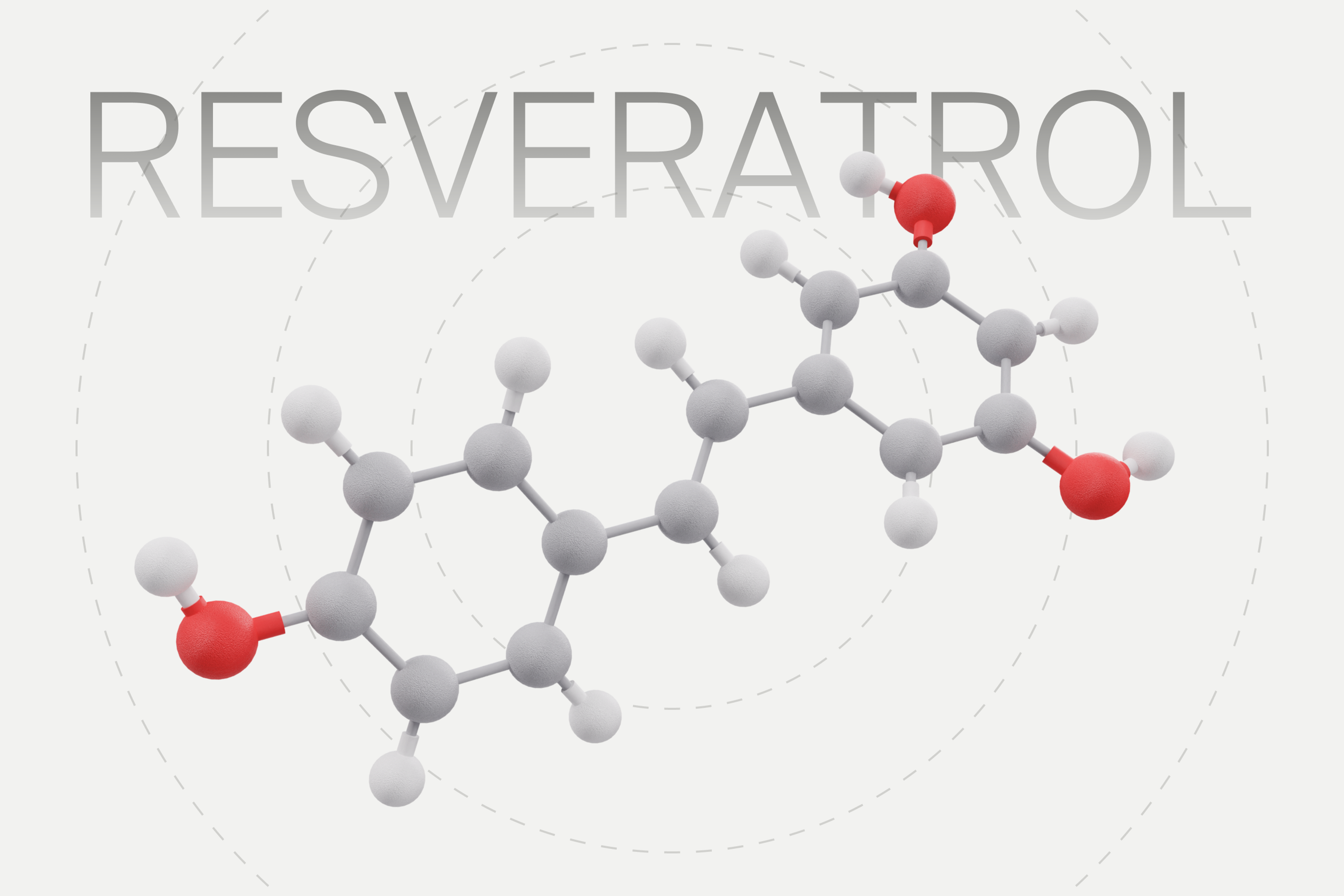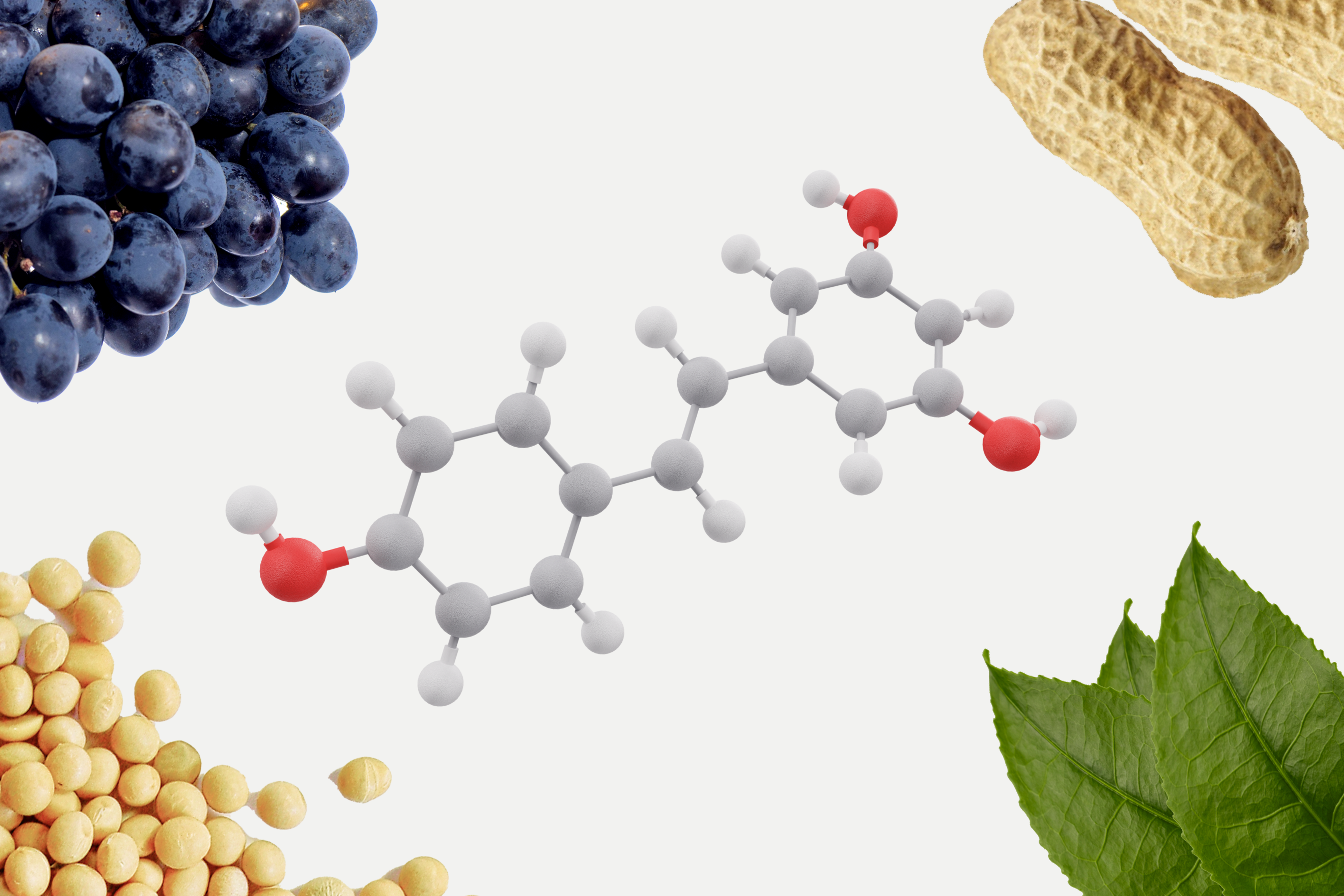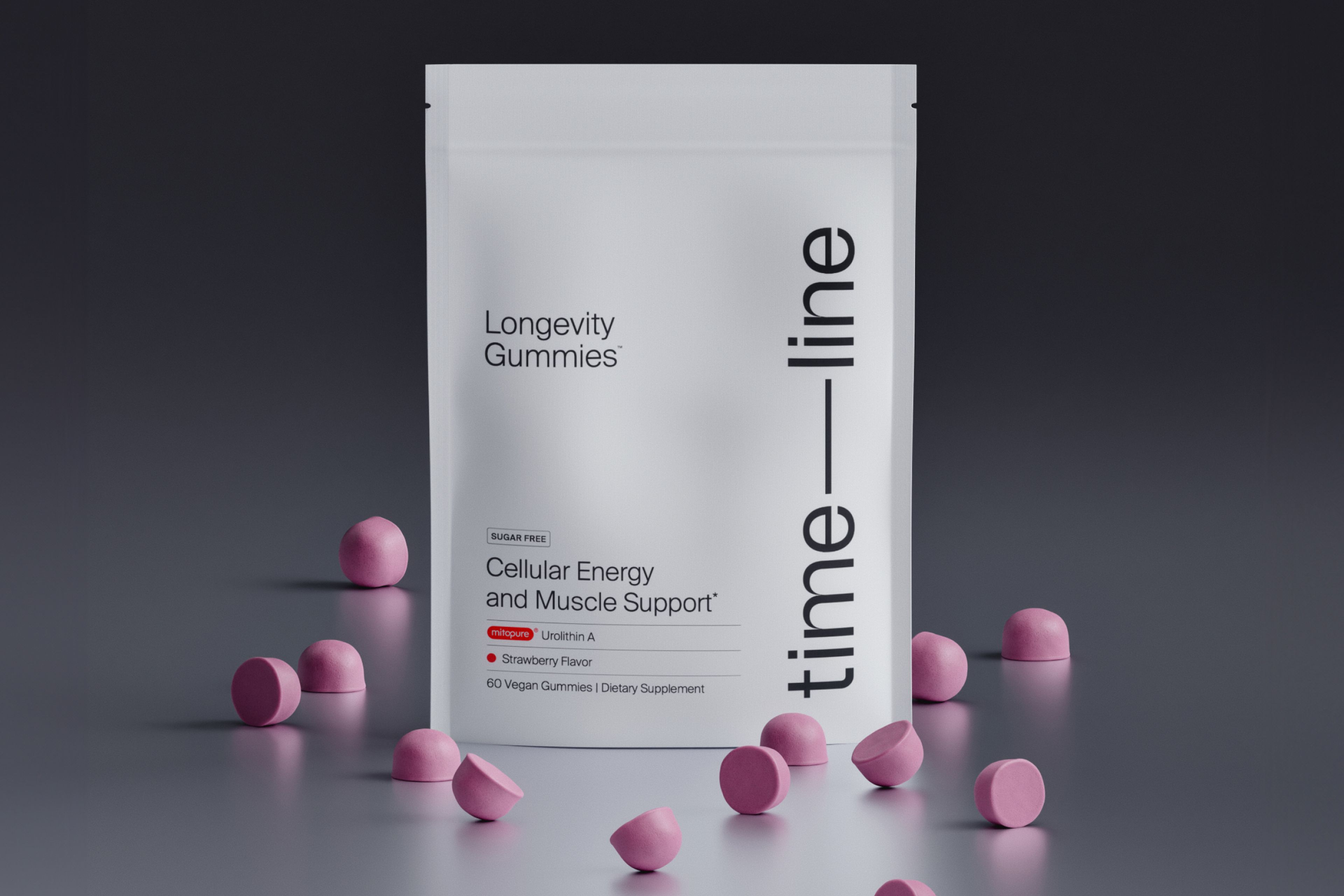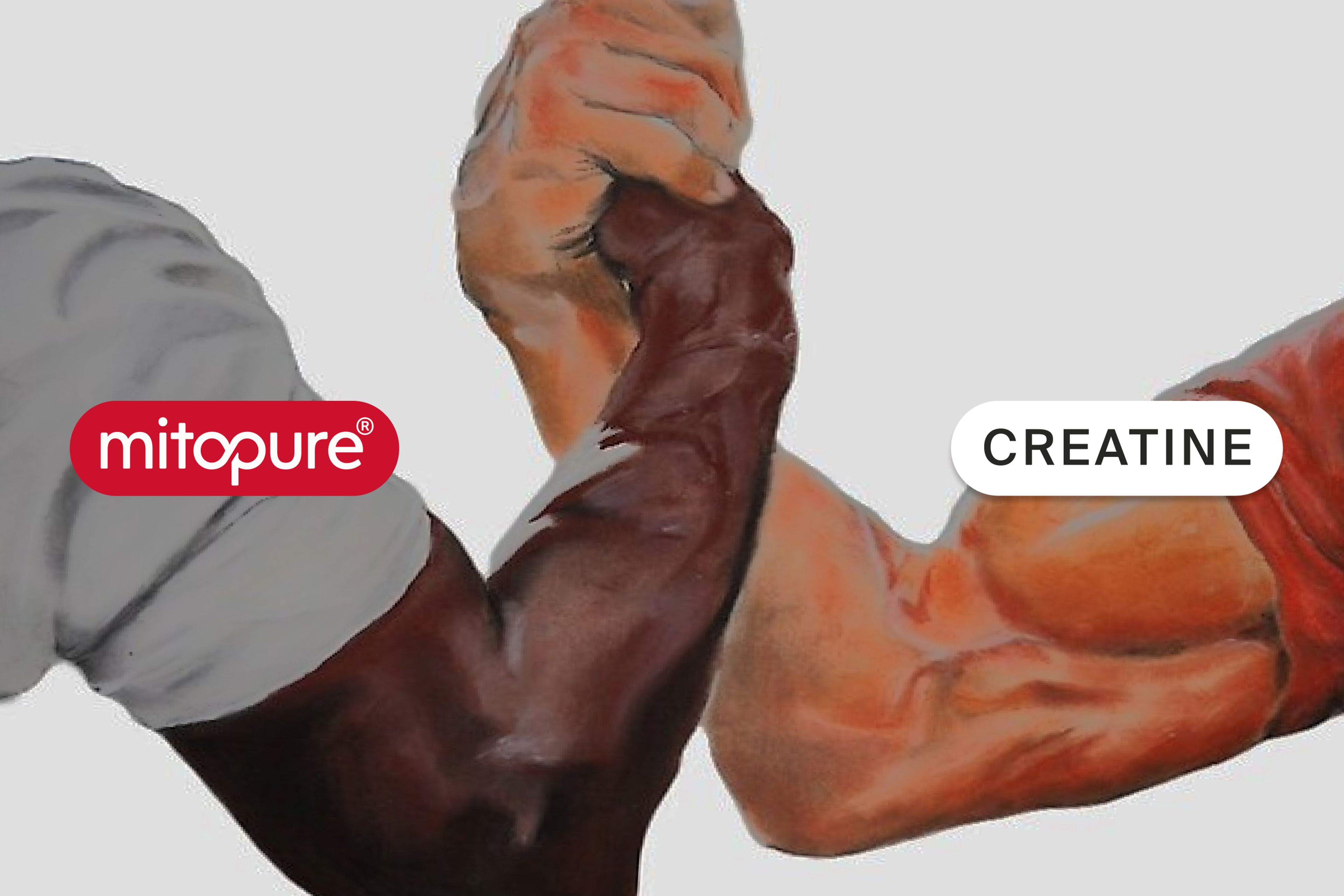Exploring the role of resveratrol in healthy aging
How might eating grapes, berries, soy, and peanuts benefit health? They all contain resveratrol a healthy aging nutrient.

What to know
Resveratrol is a substance that is found in many plant-source foods and has been linked to healthy aging
Resveratrol may inhibit inflammation, help protect cells from damage and improve mitochondrial function to promote health
While some mild side effects of resveratrol have been identified, benefits include possible prevention of various conditions
CoQ10, NMN, and Mitopure® (Urolithin A) are other compounds that have also been shown to improve mitochondrial function and promote healthy aging
As the quest for healthy aging continues to gain widespread attention, the spotlight shines on nature's pantry, revealing food components with powerful health-promoting properties. Resveratrol, a substance that is found in grapes and wine, as well as in other plant-source foods, is one example.
What does resveratrol do?
Resveratrol is a polyphenol known to be an antioxidant and has been shown to have numerous health benefits.[1] Resveratrol exhibits antitumor activities and has also been found to have cardioprotective and neuroprotective properties.[2]
How resveratrol slows down aging
Resveratrol is believed to slow down aging through multiple activities in the body[3]. For example, some research has shown that resveratrol inhibits inflammation and helps protect cells from damage.
Resveratrol may also work to improve mitochondrial function through its effect on the genes involved in energy metabolism.[4] The mitochondria generate energy and are considered the “powerhouse” of the cell. Mitochondrial dysfunction is known to be a hallmark of aging and is an important target for improving the quality of life.[5]

Benefits of Resveratrol
Benefits and side effects of resveratrol
Resveratrol has a number of potential health benefits[6]. Resveratrol benefits may include:[7]
- Improvement in blood lipids and blood pressure
- Protection of the brain
- Improvement in insulin sensitivity
- Support of wound healing
While many potential benefits of resveratrol have been found, some studies have also shown side effects. These include headaches, dizziness, gastrointestinal issues, and rashes, among others. [8]Resveratrol side effects identified are generally considered to be mild and sporadic, and usually only occur with high doses like what one might get through supplementation.
Where is resveratrol found naturally?
In terms of what types of foods have resveratrol, it is naturally occurring in many types of plant-source foods. These include grapes, wine, peanuts, soy, different types of berries, and some tea.[9]

Grapes, peanuts, soy and tea are some of the foods with high levels of resveratrol
How resveratrol compares to CoQ10, NMN, and Urolithin A
Several other compounds have gained attention when it comes to healthy aging, including Coenzyme Q10 (CoQ10), nicotinamide mononucleotide (NMN), and Urolithin A (UA). Like resveratrol, these compounds have been shown to play a role in maintaining mitochondrial health and are often taken in supplement form.
CoQ10 is found naturally in almost every cell in the body and functions as an antioxidant. It is needed for energy production. Decreasing levels of CoQ10 with age could be one of the main factors in the development of chronic disease,[10] and supplementation may combat this.
NMN is a compound that is needed for the production of NAD+, which is an essential coenzyme found in the body that declines as people age. NAD+ is important for mitochondrial health. Taking NMN may help to boost NAD+ levels, protect the mitochondria, and promote healthy aging.[11]
UA is a natural compound produced in the gut from antioxidants consumed in foods such as nuts, berries and pomegranates. UA improves cellular health by enhancing the function of the mitochondria and reducing inflammation. UA supplementation may be used to promote healthy aging and may prevent physiological decline.[12]

Mitopure Softgels
Bestseller4.4 · 3103 reviews
The simplest form of Mitopure
Final words
Given its many potential benefits and potential to improve mitochondrial health and cellular function, resveratrol is a compound of interest when it comes to healthy aging. Resveratrol is one of numerous compounds that support energy production and may be key when it comes to protecting cells from damage to promote health.
Authors

Written by
Professor of Nutrition & Scientific Writer

Reviewed by
Senior Manager of Nutrition Affairs
References
- ↑
Burns J, Yokota T, Ashihara H, Lean ME, Crozier A. Plant foods and herbal sources of resveratrol. J Agric Food Chem. 2002 May 22;50(11):3337-40. doi: 10.1021/jf0112973. PMID: 12010007.
- ↑
Salehi B, Mishra AP, Nigam M, Sener B, Kilic M, Sharifi-Rad M, Fokou PVT, Martins N, Sharifi-Rad J. Resveratrol: A Double-Edged Sword in Health Benefits. Biomedicines. 2018 Sep 9;6(3):91. doi: 10.3390/biomedicines6030091. PMID: 30205595; PMCID: PMC6164842.
- ↑
Pyo IS, Yun S, Yoon YE, Choi JW, Lee SJ. Mechanisms of Aging and the Preventive Effects of Resveratrol on Age-Related Diseases. Molecules. 2020 Oct 12;25(20):4649. doi: 10.3390/molecules25204649. PMID: 33053864; PMCID: PMC7587336.
- ↑
Lagouge M, Argmann C, Gerhart-Hines Z, Meziane H, Lerin C, Daussin F, Messadeq N, Milne J, Lambert P, Elliott P, Geny B, Laakso M, Puigserver P, Auwerx J. Resveratrol improves mitochondrial function and protects against metabolic disease by activating SIRT1 and PGC-1alpha. Cell. 2006 Dec 15;127(6):1109-22. doi: 10.1016/j.cell.2006.11.013. Epub 2006 Nov 16. PMID: 17112576.
- ↑
Natarajan V, Chawla R, Mah T, Vivekanandan R, Tan SY, Sato PY, Mallilankaraman K. Mitochondrial Dysfunction in Age-Related Metabolic Disorders. Proteomics. 2020 Mar;20(5-6):e1800404. doi: 10.1002/pmic.201800404. Epub 2020 Mar 17. PMID: 32131138.
- ↑
Singh AP, Singh R, Verma SS, Rai V, Kaschula CH, Maiti P, Gupta SC. Health benefits of resveratrol: Evidence from clinical studies. Med Res Rev. 2019 Sep;39(5):1851-1891. doi: 10.1002/med.21565. Epub 2019 Feb 11. PMID: 30741437.
- ↑
Hecker A, Schellnegger M, Hofmann E, Luze H, Nischwitz SP, Kamolz LP, Kotzbeck P. The impact of resveratrol on skin wound healing, scarring, and aging. Int Wound J. 2022 Jan;19(1):9-28. doi: 10.1111/iwj.13601. Epub 2021 May 5. PMID: 33949795; PMCID: PMC8684849.
- ↑
Shaito, Abdullah et al. “Potential Adverse Effects of Resveratrol: A Literature Review.” International journal of molecular sciences vol. 21,6 2084. 18 Mar. 2020, doi:10.3390/ijms21062084
- ↑
Tian B, Liu J. Resveratrol: a review of plant sources, synthesis, stability, modification and food application. J Sci Food Agric. 2020 Mar 15;100(4):1392-1404. doi: 10.1002/jsfa.10152. Epub 2019 Dec 14. PMID: 31756276.
- ↑
Garrido-Maraver J, Cordero MD, Oropesa-Avila M, Vega AF, de la Mata M, Pavon AD, Alcocer-Gomez E, Calero CP, Paz MV, Alanis M, de Lavera I, Cotan D, Sanchez-Alcazar JA. Clinical applications of coenzyme Q10. Front Biosci (Landmark Ed). 2014 Jan 1;19(4):619-33. doi: 10.2741/4231. PMID: 24389208.
- ↑
Soma M, Lalam SK. The role of nicotinamide mononucleotide (NMN) in anti-aging, longevity, and its potential for treating chronic conditions. Mol Biol Rep. 2022 Oct;49(10):9737-9748. doi: 10.1007/s11033-022-07459-1. Epub 2022 Apr 20. PMID: 35441939.
- ↑
D'Amico D, Andreux PA, Valdés P, Singh A, Rinsch C, Auwerx J. Impact of the Natural Compound Urolithin A on Health, Disease, and Aging. Trends Mol Med. 2021 Jul;27(7):687-699. doi: 10.1016/j.molmed.2021.04.009. Epub 2021 May 21. PMID: 34030963.

•
Nutrition•
First-of-Its-Kind Longevity Gummy Launched

•
Skincare•






